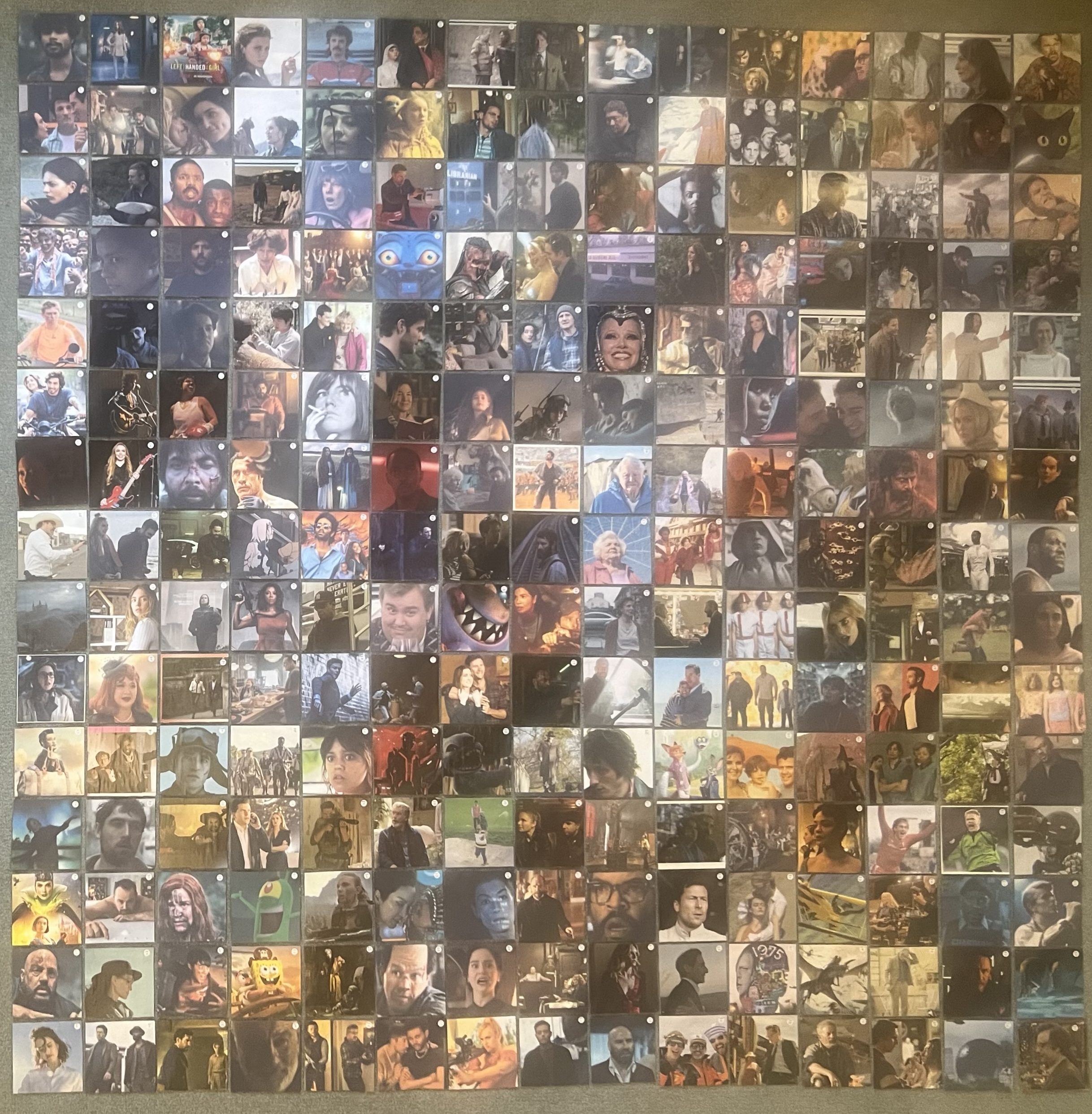I am hauling myself bucking and bellowing into redraft eleven of the dissertation story. I’ve circled it warily for weeks.
I think it’s reached a sort of Rubik’s Cube stage; the impression that it might be nearing completion is illusory. This story needs to be pitilessly undone before it can be put together nicely. I am trying to resist the temptation to just rip the little coloured squares off and stick them back (all curling at the edges) where I think they should go.
To recap for my other reader, the story is called The Shoes and is about a relationship over forty years told from alternating male and female points of view (POV). Initially, it was to be 2,000 words long. An earlier post about the process is here.
The story is an indeterminate form; too long for a short story, too short for a novella. I've termed it a Loomidob for now.
I have written a large chunk of backstory for my female character. It relates to a time when the girl is trying to prevent the adoption of the child she is expecting. The extract became a short story called The Musical Mobile (as if I haven’t told you that already).
My supervisor, The Author who is Writing about Neanderthals, said it is fine for me to write about events that have influenced characters but, to be fair, I should do something similar for my man character.
What I have been advised that I need to do:
See what techniques real authors use to get around the problems I am experiencing.
Signal temporal and narrative shifts more effectively.
Give my man more substance, more backstory - even if it is never used.
Sort out continuity and cohesion problems and research facts instead of guessing stuff.
During the wasted weeks when I’ve felt shitty and I haven’t felt able to write nicely I’ve been:
reading;
speaking to real authors by email;
thinking about my male character and trying to work out why he doesn’t seen authentic.
What I’ve read:
The Unconsoled by Kazuo Ishiguro (a get-better present from a really good friend)
Black Rock by Amanda Smyth
The Unconsoled by Kazuo Ishiguro (a get-better present from a really good friend)
Black Rock by Amanda Smyth
The Leaping by Tom Fletcher
Housekeeping, Gilead and Home by Marilynne Robinson
The Amateur Marriage by Anne Tyler
What I’ve learnt:
Real authors make themselves write however shitty they feel because they can edit and redraft weak work but they cannot edit no work. Real authors write a lot of stuff that never sees the light of day in its original form.
That I have to stop being resistant to signalling narrative shifts. In The Leaping, Tom Fletcher alternates between two narrative voices and he signposts each change with the narrators name. It works very well.
I have to stop being resistant to naming my characters; it isn’t enigmatic, it’s pretentious and irritating.
I am going to have to write a lot of backstory for both of my characters and then jettison most of it; the piece is now over 17,000 words long and my word limit for assessment is 12,000. 17,000 (and growing) is really unwieldy; I forget where stuff is and my style has evolved as I’ve been writing so there are big discrepancies in technique.
I need to avoid sentimentality and cliché by recalling my own honest emotions rather than writing what I imagine a pretend person (who is inevitably more sophisticated than me) might do and feel. A line from Anne Tyler’s book The Amateur Marriage brought me up short.
The extract is set in the US in the1960s. A mother has just discovered that her runaway daughter is in hospital in San Francisco, which is thousands of miles away from where she and her husband live. She telephones her husband at work:
‘We have to go, you have to come home, how will we get there? …… We have to buy airplane tickets, how do people do that?’
Which I think is exactly how a real person might respond in the circumstance. That is how I would respond.
I need a timeline to give me an overview of the structure of the story and to highlight irregularities or sloppiness. For example, I realise that I've written about a Harvest Moon in May, and I refer to a general election in 1974 that didn’t happen until 1976.
Also I’ve made the male character’s father a socialist refugee. Because my grasp of history is poor I don’t know which European countries generated socialist refugees around the time of WW2, or whether they were likely to arrive before, during or after the war.
Part of me thinks that this is my made up world and it doesn’t matter what I make up. Part of me knows that if I were an examiner I’d throw a script across the room for slapdash fact-finding.
What has happened:
I am sick to death of the title, The Shoes. If I could set fire to that stupid title, I would. If I could hang it, draw it, quarter it and put its head on a stake outside the city walls, I would.
I have given my characters names, Joan and Senny (short for Senacerib).
I signal narrative shifts CLEARLY.
My characters have more substance; transpires a high proportion of them were bed wetters (really!) No idea this has happened and I might have to rethink it - but what can I do? Maybe noctural enuretics do clump clammily together for comfort.
I am still finding it much harder to write the male point of view than to write the female point of view.
I listened to Michael Portillo’s Democracy on Trial on Radio 4. Michael’s father is Spanish, a Labour voter who came to the UK just before WW2 as a refugee. Hurrah!! Senny’s dad is that thing too!
What is still to do:
Ensure that the characters’ POV are distinctive, consistent and emotionally honest.
Ensure that the characters’ POV change and age as they do.
Write, edit, write, edit, stop being a wuss, write, edit.
Thank you to David Wright for my photograph of a wistful Rubik’s Cube (I knew David would had a Rubik’s Cube to photograph for me because he can do them very quickly!)
David and his band The New Zealand Story are at Spotlight on Friday 21 May 2010, as are many other splendid people. Look Here for details.
David and his band The New Zealand Story are at Spotlight on Friday 21 May 2010, as are many other splendid people. Look Here for details.
I’ve got these books still to read:
The Pregnant Widow by Martin Amis (a get-better present from someone Very Fine)
Antwerp by Nicholas Royle
Not So Perfect by Nik Perring (both get-better presents from myself)
























.JPG)


